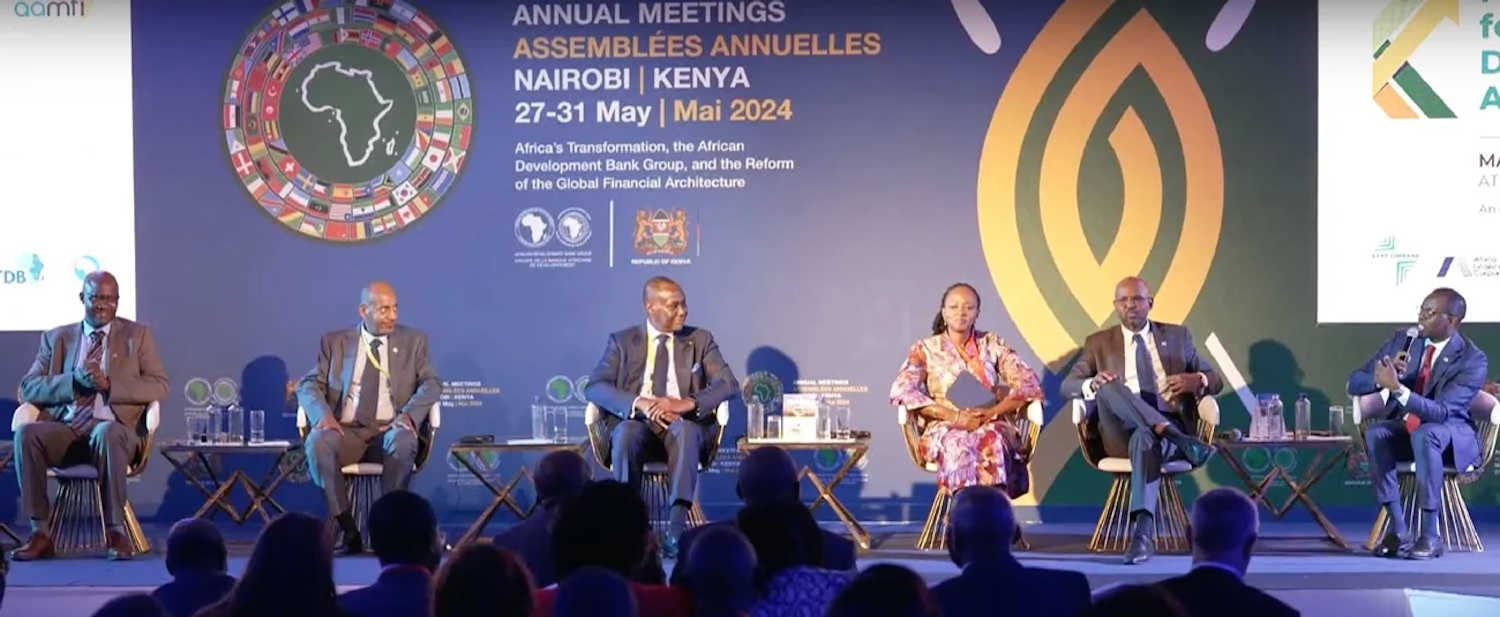
The African Development Bank Group’s Annual Meetings 2024 began in Nairobi, Kenya on Monday, with a panel discussion about how to mobilizing funding to develop the private sector in Africa. Organized jointly by the Bank Group and the Alliance of African Multilateral Financial Institutions (AAMFI), the session ran parallel to the meetings and allowed participants to emphasize the vital role of African multilateral financial institutions, such as the African Development Bank, in resolving funding problems, mainly for the private sector, to accelerate the continent’s transformation. Policymakers, financial institutions, investors, economists and financial experts all contributed.
Benedict Oramah, Chairman of the Board of Directors of Afreximbank and the AAMFI, explained that the AAMFI, as a platform for everyone, was intended to fulfil a mandate for all African countries. The Alliance supports private-sector activities and facilitates trade within Africa in implementing the African Continental Free Trade Area. Countries are committed to collaboration and coordination to facilitate Africa’s financial independence to achieve this, he commented.
“Multilateral African institutions also hope to strengthen their cooperation with the African Development Bank through the Alliance,” he continued.
Albert M. Muchanga, African Union Commission Trade and Industry Commissioner, emphasized that African countries have a duty to ensure that their economies prospered. “But at the same time, we need a favourable continental and global environment. If Africa is to be transformed, we need to make it easier for the private sector to contribute by offering incentives,” he added, to encourage the private sector.
He highlighted the importance of value chains for African economies: “If we continue to sell raw materials, we will continue to be poor; we need to unlock, capture and exploit value on the continent and create jobs in the process.”
Africa must also invest in education and research institutions, with a capital market that is capable of exploiting Africa’s huge potential through structural investments.
Mr Admassu Tadesse, Trade and Development Bank CEO, hoped that “business will be done differently if we want to achieve a genuine transformation. Synergies and collaboration across the continent allow economies of scale, and the reason that large-scale projects have been able to succeed is the number of partners working together, with success stories attracting more investors,” he added.
Mr James Mwangi, Director of Equity Bank Group, emphasized the role of commercial banks and synergies with the public sector in private sector development, saying “An integrated economy always needs the public and private sectors to work together.”
The panel also addressed the management of the risks associated with countries’ political environment, with about 20 elections forthcoming on the continent. However, there are also risks associated with investments and the rise in electricity prices.
“We need to reduce risks in the commercial sector by increasing the volume of trade between African countries, which is no more than 16%. With its 1.5 billion inhabitants, Africa offers enormous potential,” stressed Mr Mwangi.
The Director General of Shelter Afrique, Thierno-Habib Hann, focused on the significant volume of investments in the housing sector, which he described as the “cornerstone of development. The building sector is a value chain that creates jobs,” he said. The housing issue is central to the problems of urbanization and the resilience of cities to climate change, and investments in this area will contribute to reducing risks for the population, he explained.
Participants raised questions about matters such as access to funding and markets for small and medium-sized enterprises, knowledge and capacity-building. The problem of raising more funds – currently around USD 95 billion – from the diaspora and how to channel them to more structural investments, was also discussed by the participants.
About the Alliance of African Multilateral Financial Institutions
The Alliance of African Multilateral Financial Institutions (AAMFI or Africa Club) was launched at the 37th African Union Summit in February 2024, to promote collaboration, cooperation and coordination among the multilateral financial institutions owned and managed by Africans and established by treaty to support Africa’s economic development and integration objectives. The founding members are the International Finance Corporation (part of the World Bank), the African Export–Import Bank (Afreximbank), the TDB Group (Trade and Development Bank), the African Reinsurance Corporation (Africa Re), the African Trade and Investment Development Insurance (ATIDI) insurance company, the Shelter Afrique Development Bank (ShafDB) and ZEP-RE (PTA Reinsurance Co.).







